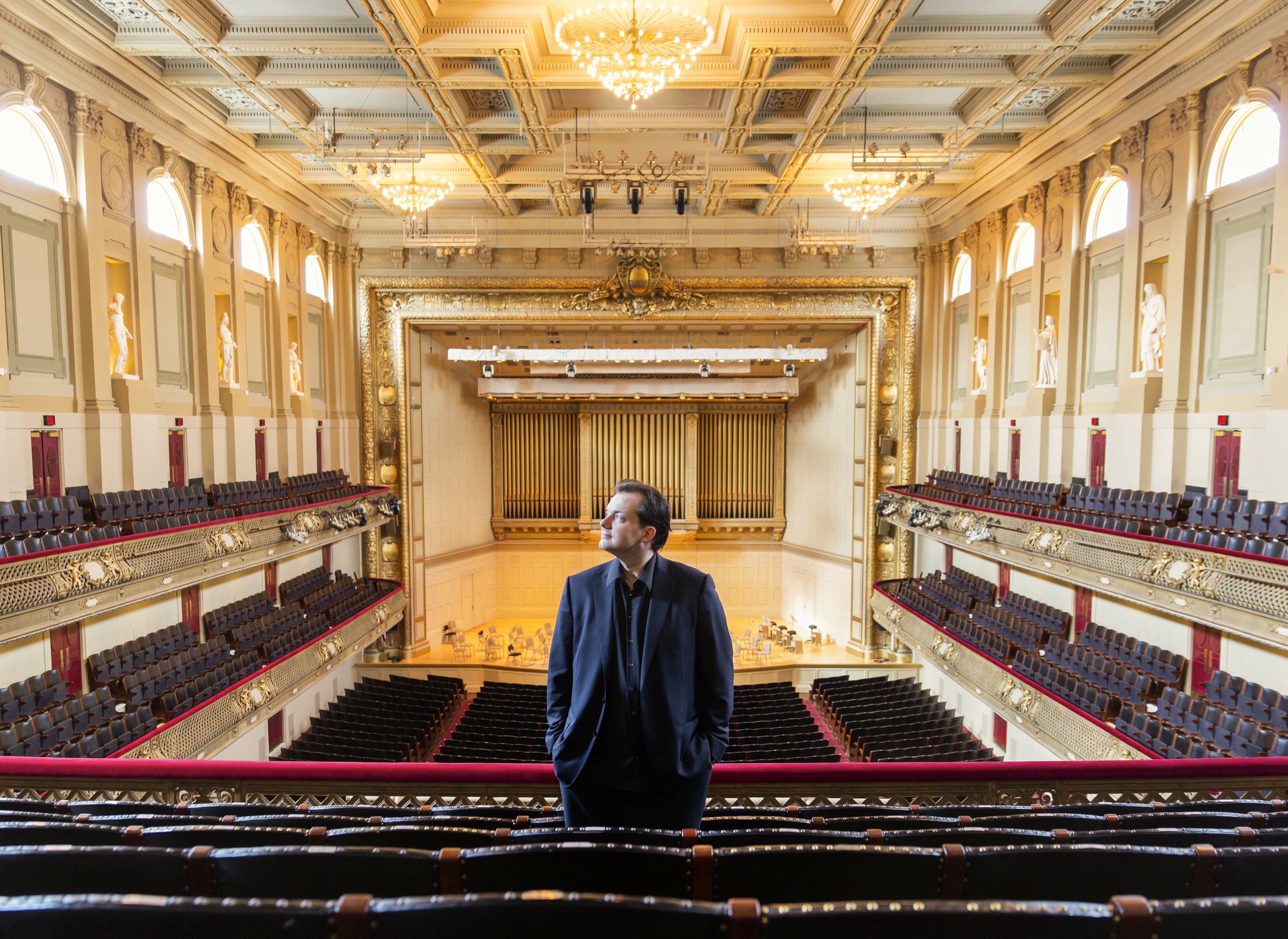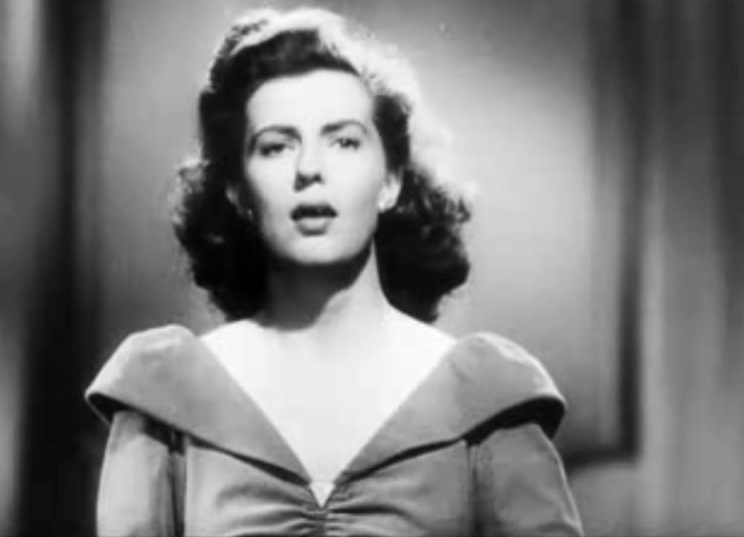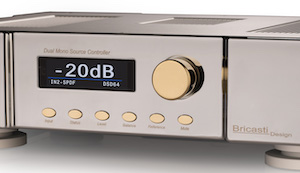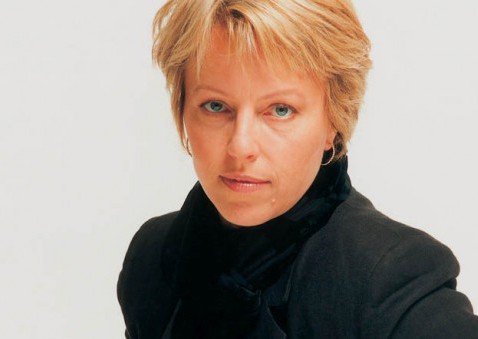
Month: July 2016
Q&A with Sergey Schepkin

Sergey Schepkin’s Steinway & Sons recording of Bach’s Six Partitas impressed me so much that I asked him to answer a few questions. Run-on questions, in fact. He coped rather well!
It seems I am not the only person who was impressed; Schepkin’s Steinway Partitas has broken into the Top 100 in one category on Amazon’s sales charts.
Here goes!
Q1: One thing that caught my eye was that your web site’s press-blurb list contained a rave from The Listener magazine about your Partitas recording on the Ongaku label, 20 or so years ago. Listener was founded and edited by Art Dudley. Art’s magazine was acquired, but then the new owners folded it. Art then moved over the Stereophile, and so was my colleague until recently.
Therefore, one thing that audiophile readers with long memories will want to know about (and I see that the Ongaku Partita recording is still available from your website) is (apart from the fact that Steinway and Sons’ CD label is an enviable place to be) is (a) why you decided to re-record your Bach repertory…
More run-on questions—and even some answers(!)—after the jump. Klicken Sie hier, bitte. Continue Reading →
Jackson Browne: “Fountain of Sorrow”
When Jackson Browne was at his most successful as a songwriter, he was not necessarily at his best. After all, he co-wrote “Take It Easy” with the Eagles’ Glenn Frey. Browne was a remarkable early bloomer as a songwriter; he was hired as a staff writer for Elektra Records’ publishing company before his 18th birthday, and worked with Tim Buckley and with Nico, formerly of The Velvet Underground.
Browne and Nico were romantically linked (it seems that happened a lot), and Browne made major contributions to her debut album as a musician and writer, including the song “These Days.” Browne’s early songwriting work was recorded by the Nitty Gritty Dirt Band, Tom Rush, Nico, Steve Noonan, Gregg Allman, Joan Baez, the Eagles, Linda Ronstadt, the Byrds, and others.
The flip side of the coin is that when Browne was at his best as a songwriter, he was usually not his most successful. In that category, I place “Fountain of Sorrow” and the title track from the album it is on, Late for the Sky. Lyric excerpts, the backstory, and more on the continuation page. Continue Reading →
Sergey Schepkin: J. S. Bach: The Six Partitas

Sergey Schepkin: J. S. Bach: The Six Partitas, BWV 825-830
2-CD set Steinway & Sons 30069
(No high-resolution download available at present)
Recorded September 2014 and September 2015, Jordan Hall, New England Conservatory, Boston, Massachusetts; Sergey Schepkin, producer; Patrick Keating, engineer.
Even if your only exposure to Bach’s great keyboard works played on the modern piano is one or another of Glenn Gould’s recordings of the Goldberg Variations (there are three, you know), you really should consider buying this new set of the Partitas on Steinway & Sons’ CD label. Don’t be scared off by the technical term “Partita.” All that means is that these are multi-movement works made up of parts; specifically, sections that usually were named after dances. Bach’s contemporaries would have understood the dance names such as “Sarabande” as giving an idea as to the tempo and feeling of each segment. The liner notes make the important point that this is not music to dance to; it is music for its own sake, about the idea or the ideal of dancing.
Sergey Schepkin’s playing is technically as good as anyone else’s out there, and his interpretations are a moveable feast—by turns fleet, witty, and playful; or, delicate, subtle, and pensive (or even serious or solemn). This music can mind its own business in the background at Campari time, but it is also worth your undivided attention late at night.
Backstory, details, and elaboration after the jump; and with generous sound samples, of course. Continue Reading →
(La) Scala & Kolacny Brothers: “California Dreamin'”
The Kolacny brothers Stijn (conductor) and Steven (arranger and accompanist) founded a girls’ choir in Aarschot, in Flemish Belgium, in 1996. I believe that the choir’s name originally was “La Scala,” which kind of makes sense; but at some point, the “La” was dropped. Within four years Scala, under the guidance of the Kolacny brothers, had won the Belgian “Choir of the Year” competition. They excel at executing the fundamentals of choral singing: pitch, timbre, dynamics, ensemble blend, phrasing, and breathing. Lots of obsessive attention to detail is in evidence when they sing.
Scala & Kolacny Brothers’ “Unique Selling Proposition,” as stated on their website, is to “take classic rock and indie songs and reinvent them as elegiac hymns—to breathtaking effect—with the piano often the sole accompaniment to the voices.” Their breakthrough came in 2010 when a trailer for the film The Social Network included their cover of Radiohead’s “Creep.” That song, by the way, was in part unconsciously borrowed from The Hollies’ “The Air That I Breathe,” and so members of The Hollies are jointly credited.
Being lucky is important in music; but, it’s hard to sustain success unless you are even better at your art than you are at being lucky. For proof of the pudding, here’s Scala’s cover of “California Dreamin’ ” from their DVD Live in Bruges. One friend, upon seeing this clip, asked in horror, “Who dresses them?” I deadpanned that they are a non-profit group, and they lucked into a really good price on the leftover costumes from the post-Apocalyptic movie The Road. He gave me a look to make sure I was joking.
# # #
Danny Infantino: “More… Songs Without Words”

Danny Infantino: More… Songs Without Words
CD Duns Scotus Recordings 002 (recorded 1995)
(No high-resolution download available, apparently.)
Danny Infantino, solo classical guitar and producer; Wes Lachot, engineer; Brent Lambert, mastering.
I got in touch years ago with Danny Infantino when I saw his company name (Duns Scotus) listed in some independent-music publication–perhaps something from the AFIM. I got a kick out of the idea that someone would name an independent record label after one of the pre-Scholastic Medieval theologians. He sent me his CDs and I was very very impressed. Years later, Stereophile‘s John Atkinson visited me and I played some of Danny’s music for him. JA, upon his return to New York, ordered the CDs directly from the artist.
This CD is a reminder, in the same way the David Nadien Swan Lake concertmaster-solo video was, that there is a shockingly weak linkage between musical quality and career and marketplace success. Danny’s technique is surpassed only by his musicianship. So, not much more to say than, click on the jump link, listen to the sound samples, and order this CD! More… Songs Without Words is available from eBay, from third-party sellers on Amazon, and directly from the artist. Just buy it. Continue Reading →
Catalina Vicens: “Parthenia,” Keyboard Music from 1613

Catalina Vicens: Parthenia
Harpsichord & Virginal Music From 1613
CD Carpe Diem 16298
24/96 + 24/192 FLAC downloads from Carpe Diem
Recorded January 22-26, 2013, Schloss Bad Krozingen, Germany; Jonas Niederstadt, producer.
What a wonderful project and what a wonderful recording! Catalina Vicens is an immensely talented and very hard-working Curtis Institute graduate, originally from Chile. She won an international early-keyboard competition hosted by the Bad Krozingen Castle. As a result, the Cultural Office of the City of Bad Krozingen and the the Fritz Neumeyer Historical Keyboards Collection made possible this, her début recording.
This is one of the most impressive and engaging keyboard recordings I have heard in years. The recorded sound is pristine and very dynamic and satisfyingly reverberant—even better, the recording was made to audiophile standards using DPA 4006 microphones, and there are 24/96 and 24/192 FLAC downloads available. Just go for it!
More, and generous sound bytes, after the jump. Continue Reading →
David Nadien: “Swan Lake” Concertmaster Solo, Leonard Bernstein/New York Philharmonic
David Nadien (1926-2014) was the concertmaster of the New York Philharmonic from 1966 to 1970. “Concertmaster” is the term for the leader of the first-section violins. In addition to other duties, the concertmaster plays the important violin solos in orchestral pieces; here Nadien plays the famous solo from Tchaikovsky’s Swan Lake. This solo (apparently from an afternoon television broadcast) is legendary among string players for Nadien’s remarkably pristine execution in general, and especially for his smoothly flowing bow changes and beautifully musical phrasing.
Perhaps some eyebrows raised when Leonard Bernstein chose, as successor to John Corigliano Sr., David Nadien, who was a studio musician with little orchestral experience. But there can be no question that this is playing on the highest level. Indeed, Nadien’s playing often elicited comparisons with Jascha Heifetz, who was still active then.
Nadien recorded little, but one of his LP recordings (as far as I know, never reissued on CD) was recorded in 1958 by David Hancock, who made all the early John Marks Records recordings (such as Arturo Delmoni’s Songs My Mother Taught Me). David Hancock learned recording via on-the-job training with Peter Bartók, Béla Bartók’s second son. David Hancock began making recordings as a fallback, in view of the rather congested job market for freshly-minted Juilliard piano graduates. (Hyperion Knight has at least one joke about that.)
So, David Hancock not only recorded the music, he also played the piano in the Franck Sonata, Debussy’s sonata in G, and short pieces by Fauré and Ravel. One for the record books, to be sure. That recording has been put up on YouTube here, audio only. The sound is a bit closely-miked; but, both players are in top form–it’s an interpretation that can withstand comparison with the “greats.”
As of this writing, there is an LP copy up on eBay (Buy It Now) for about 12 coins of the realm–WNTL?
(The Nadien/Hancock LP shows up on eBay regularly–save a search for it, if you were not in time to snatch this one up.)
# # #


